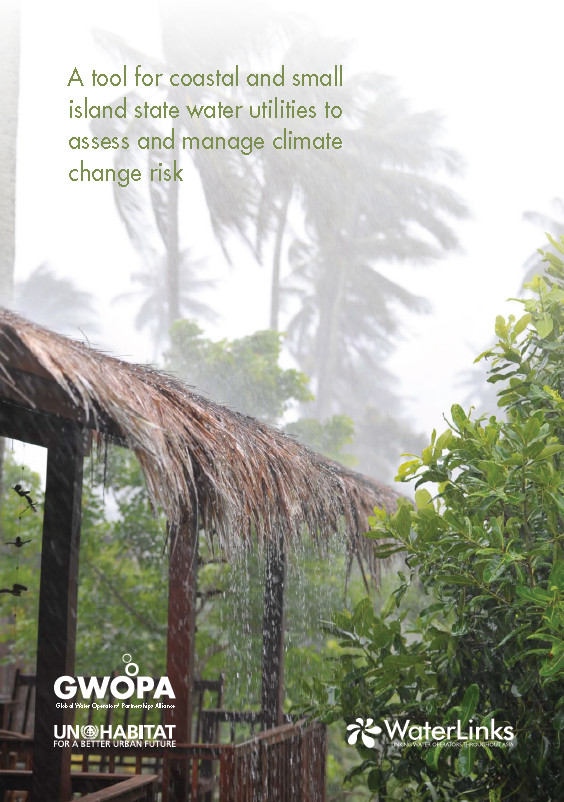A tool for coastal and small island state water utilities to assess and manage climate change risk
 |
guide , decision support instrument Jan 2016 ; 56 pages
Ed. GWOPA - Bonn
Downloadable format: PdF
Downloadable from the publisher
Editor Presentation
Abstract:
This guidebook is designed to help utilities identify and assess climate change manifestations that impact adversely on their operations and formulate a credible response. Contents:
The 12 exercises under Top-down approach in the tool will allow you to produce the following outputs:
- Range and scale of exposure and sensitivity of your assets including water and wastewater facilities, machines and equipment, to extreme weather events such as storms, floods and droughts;
- Indicative trends and likely amounts of water lost (or gained) due to variability in precipitation, both current and projected, from surface and ground water resources;
- Indicative trends in concentration of salinity in your existing ground water resources, both current and projected;
- Range of adaptation options and technologies that you can deploy;
- A communications strategy that will enable you to pursue a continuous dialogue with your principal stakeholders; and
- A final implementation plan that you will need to action.
The Bottom-up approach endeavors to elicit similar outcomes through the outputs below:
- Critical climate variables and the water utility’s sensitivity to these;
- Water system responses to a range of potential climate changes;
- Vulnerability of the water utility to climate change impacts;
- System performance according to the uncertainty associated with climate change factors driving the water utility’s vulnerability; and
- Overall system risk analysis and areas in need of further analysis.
Keywords: |
Publisher/Broadcaster: |
|
GWOPA
-
Global Water Operators Partnership Alliance - Bonn - Germany |
If there is a broken link, we will be pleased to receive a message: communication@pseau.org